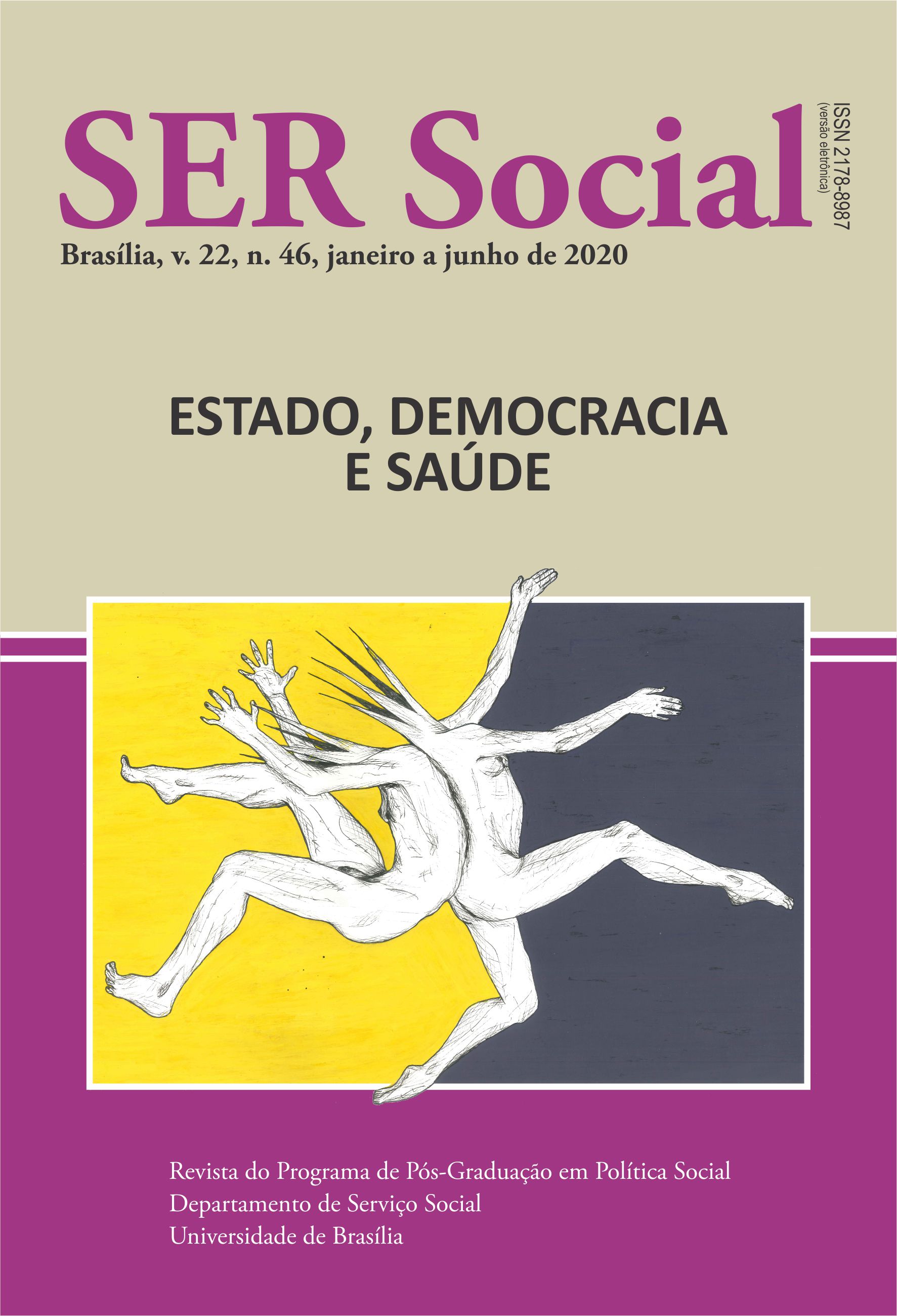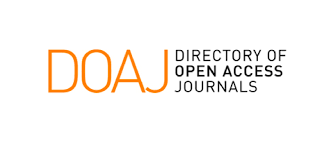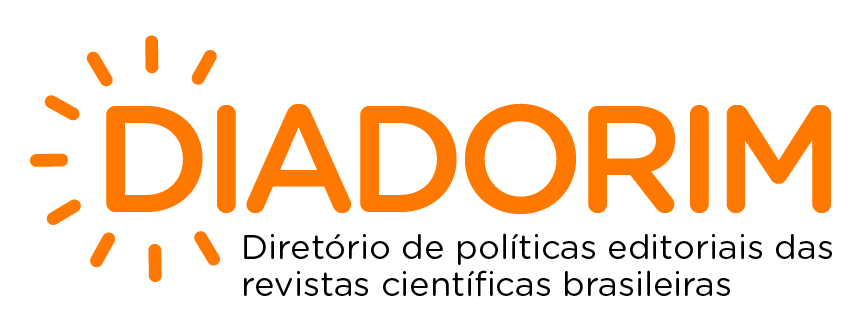Lifelong Education and Intergeracional Learning: The Transformative Role of Socioanimation Projects
DOI:
https://doi.org/10.26512/ser_social.v22i46.22050Keywords:
Permanent education. Intergeracional learning. Socioanimation projects. Active ageing and life course.Abstract
The concept of aging is multidisciplinary and is explained in the literature in the light of various perspectives. In this article of theoretical reflection and bibliographical research, ageing is thought following life
course approach (life-course/life-span), which has contributed to changing the negative conception of the elderly, as a patient and passive, putting the emphasis on the possibility of development and pro-activity throughout its lifecycle. In this sense, there are several educational intervention strategies for the promotion of active ageing. Thus, in reflection presented, in the second and third sections of the text, the choice was for a focus on the specific contribution that the intergenerational dynamics can offer to transformation when integrated into social-animation projects. The adoption of this theoretical-conceptual prism results in the possibility of thinking about animation as a methodology for developing the quality of life of older people, adults, young people and kids, both in community or institutional settings.
Downloads
References
ABRAMS, P. Historical sociology. England: Shepton Mallet Open Books, 1982.
ALHEIT, P. Mentality and intergenerationality as framework conditions of ‘lifelong learning’ conceptional consequences of a multi-generational study in East Germany, Investigar em Educação. Número temático sobre: Intergeracionalidade e Educação ao Longo da Vida, II Série, n. 5, p. 29-51, 2016.
ALHEIT, P.; DAUSIEN, B. ‘Biographicity’ as a basic resource of lifelong learning. In: ALHEIT, P.; BECK, J.; KAMMLER, SALLING OLESEN, H.; TAYLOR, R. (Eds.). Lifelong learning inside and outside schools. V. 2, Roskilde: University of Roskilde, 2000, p. 400-422.
ANDER-EGG, E. El léxico del animador. Buenos Aires: Humanitas, 2006.
ANDER-EGG, E. Metodologia y prática del desarrollo de la comunidad. Buenos Aires: Humanitas, 2003.
ANDER-EGG, E.; AGUILAR IDÁNEZ, M. J. Como elaborar um projeto. Guia para desenhar projetos sociais e culturais. Lisboa: Centro Português de Investigação em História e Trabalho Social, 1999.
AZEVEDO, M. J.; TELES, R. Revitalize a sua mente. In: RIBEIRO, O.; PAÚL, C. (Eds.), Manual de envelhecimento ativo. Lisboa: Lidel, 2011, p. 77-112.
BALTES, P. B.; REESE, H. W.; LIPSITT, L. P. Life-span developmental psychology, Annual Review of Psychology, n. 31, p. 65-110, 1980.
BARROS, R. Subsídios breves para o debate de princípios e valores na formação política do(a) educador(a) social. Lisboa: Chiado, 2012.
BARROS, R. Genealogia dos conceitos em educação de adultos: da educação permanente à aprendizagem ao longo da vida. Um estudo sobre os fundamentos político-pedagógicos da prática educacional. Lisboa: Chiado, 2011.
BARROS, R.; CHOTI, D. (Orgs.). Abrindo caminhos para uma educação transformadora. Ensaios em Educação Social, Filosofia Aplicada e Novas Tecnologias. Lisboa: Chiado, 2014.
BJURSELL, C. Organizing for intergenerational learning and knowledge sharing, Journal of Intergenerational Relationships, n. 13, p. 285-301, 2015.
CANÁRIO, R. Adultos. Da escolarização à educação. Revista Portuguesa de Pedagogia, n. 35 (1), p. 85-100, 2001.
CANÁRIO, R. Educação de adultos. Um campo e uma problemática. Lisboa: Educa-Formação/Anefa, 2000.
CEBALLOS, P.; LARRAZABAL, M. Formación de animadores y dinamicas de la animación. Madrid: Popular, 1988.
CORREIA, E. Saúde do idoso. Polifonia de vozes. (Dissertação de mestrado). Viana do Castelo: Instituto Politécnico de Viana do Castelo, 2014.
CRUZ, M. T. La orientación y la animación com personas mayores. Huelva: Universidad de Huelva, 2003.
DELGADO, C.; BARROS, R. O papel dos projetos de animação sociocultural com idosos institucionalizados. In: ANICA, A. (Cood.). Envelhecer no Algarve. P. 153-166. Faro: Universidade do Algarve (E-Book), 2018.
DEWEY, J. Education and democracy. New York: The Free Press, 1916. FAURE, E.; HERRERA, F.; KADDOURA, A. R.; LOPES, H.; PETROVSKY, A. V. ; RAHNEMA, M. ; WARD, F. C. Learning to Be. The word of education today and tomorrow. Paris: Unesco, 1972.
FERNANDEZ-BALLESTEROS, R. Envejecimiento activo: contribuciones de la psicologia. España: Piramide, 2009.
FERNÁNDEZ, J. V. Programas de animación sociocultural. Tres instrumentos para su diseño y evaluación. Madrid: Narcea. 1997.
FONTAINE, R. Psicologia do envelhecimento. Lisboa: Climepsi, 2000.
FREIRE, P. Extensão ou Comunicação? Rio de Janeiro: Paz e Terra, 1992.
FREIRE, P. Conscientização. São Paulo: Moraes, 1980.
FROUFE-QUINTAS, S.; SÁNCHEZ-CASTRAÑO, M. A. Animación sociocultural: nuevos enfoques. Salamanca: Amarú, 1998.
HENDRY, L. Developmental transitions across the lifespan: selected works of Leo B. Hendry. New York: Psychology Press, 2015.
HOLSTEIN, J.; GUBRIUM, J. Constructing the life course. New York: General Hall, 2000.
JACOB, L. Animação de idosos. Porto: Âmbar, 2007.
JARDIM, J. O método de animação. Porto: Ave, 2002.
KOLB, D. Experiential learning. Experience as the source of learning and development. New Jersey: Prentice-Hall, 1984.
LARA, T.; CUBERO, M. V. Las personas mayores. Perspectivas desde la animación. Madrid: C.C.S, 1993.
LENGRAND, P. Introdução à educação permanente. Lisboa: Horizonte, 1970.
LINDEMAN, E. C. The meaning of adult education. New York: New Republic, 1926.
LOPES, M. DE S. Animação sociocultural em Portugal. Chaves: Intervenção. Associação para a Promoção e Divulgação Cultural, 2008.
MANNHEIM, K. The problem of generations, In: P. KECSKEMETI. Essays on the sociology of knowledges. New York: Routledge & Kegan Paul, p. 251-273, 1952.
MERRILL, B.; BARROS, R.; FERNANDES, P.; SEIXAS, A. M. Editorial. Investigar em Educação (número temático sobre: Intergeracionalidade e Educação ao Longo da Vida, II Série, n. 5, p. 7-10, 2016.
MORTIMER, J.; SHANAHAN, M. (Eds.). Handbook of the life course. New York: Kluver Academic/Plenum, 2003.
OSÓRIO, A. Animação sociocultural na terceira idade. In: JAUME TRILLA (Coord.) Animação sociocultural. Teorias, programas e âmbitos. Lisboa: Instituto Piaget, 2004, p. 250-263.
OSÓRIO, A. Planes gerontologicos y proyectos de animación sociocutural para las personas mayores. Ediciones Universidad de Salamanca Teor. Educ., n. 12, p. 85-105, 2000.
OSÓRIO, A.; PINTO, F. (Coord.) As pessoas idosas, contexto social e intervenção educativa. Lisboa: Instituto Piaget, 2007.
PAES, P.; GUEDES, O. Emancipação humana e o debate dos direitos humanos. SER Social, v. 17, n. 37, p. 310-325, 2016.
PEREIRA, J. D.; LOPES, M. S. As fronteiras da animação sociocultural. Chaves: Intervenção ”“ Associação para a Promoção e Divulgação Cultural, 2011.
PÉREZ-SERRANO, G.; GUZMÁN-PUYA, M. V. P. Qué es la animación sociocultural: epistemología y valores. Madrid: Narcea, 2006.
POZA-VILCHES, F.; FERNÁNDEZ-GARCÃA, A.; FERREIRA-DELGADO, P. La práctica profesional de los agentes sociales en materia de ocio juvenil: estrategias para la intervención. Pedagogía Social, n.31, p. 93-105, 2018.
RIBEIRO DIAS, J. A educação de adultos como objectivo da educação escolar no contexto da educação permanente. In: ANTÓNIO INÁCIO; JOAQUIM MORAIS (Eds.). CONGRESSO NACIONAL DE EDUCAÇÃO DE ADULTOS, I. Coimbra: Associação Portuguesa para a Cultura e Educação Permanente, p. 35-41, 1986.
SALANOVA, M. P. La participación de las personas mayores ”“ apuntes para una agenda de intervenciones gerontológicas. Revista Interuniversitaria de Formación del Professorado, n. 45, p. 21-32, 2002.
SANTOS, S. Concepções teórico-filosóficas sobre envelhecimento, velhice, idoso e enfermagem gerontogeriátrica. Revista Brasileira de Enfermagem, n. 63 (6), p.1035-1039, 2010.
SCORALICK-LEMPKE, N.; BARBOSA, A. Educação e envelhecimento: contribuições da perspectiva Life-Span. Estudos de Psicologia, n. 29 (Supl.), p. 647-655, 2012.
SILVA, G. G., SILVA, L. G.; SIMÕES, M. E. Apoio a atividades educativas e culturais. Lisboa: Direcção-Geral de Extensão Educativa, 1992.
SMITH, A. Adult Education Committee Final Report. Nottingham: Department of Adult Education of the University of Nottingham, 1919.
SOUSA SANTOS, B., GONELHA, M.; BRUTO DA COSTA, A. Uma visão solidária da reforma da segurança social. Coimbra: Centro de Estudos Sociais/União das Mutualidades Portuguesas, 1998.
UCAR, X. A avaliação da animação sociocultural. In: TRILLA, J. (Coord.) Animação sociocultural. Teorias, programas e âmbitos. Lisboa: Instituto Piaget, 2004, p. 189-206.
UNESCO. Learning together across generations. Guidelines for family literacy and learning programmes. Hamburg: Unesco. Institute for Lifelong Learning, 2017.
WHITEHOUSE, P. The challenges of cognitive aging: integrating approaches from science to intergenerational relationships. Journal of Alzheimer’s Disease, n. 36, p. 225-232, 2013.
WHO. Active ageing: a policy framework. Geneva: World Health Organization, 2002.
WITHNALL, A. Lifelong learning comes of age: intergenerational perspectives. Investigar em Educação. (número temático sobre: Intergeracionalidade e Educação ao Longo da Vida, II Série, n. 5, p. 11”“ 27, 2016.
Downloads
Published
How to Cite
Issue
Section
License
 Todo o conteúdo deste periódico, exceto onde está identificado, está licenciado sob uma https://creativecommons.
Todo o conteúdo deste periódico, exceto onde está identificado, está licenciado sob uma https://creativecommons.
Copyright: Os autores serão responsáveis por obter o copyright do material incluído no artigo, quando necessário.
Excepcionalmente serão aceitos trabalhos já publicados (seja em versão impressa, seja virtual), desde que devidamente acompanhados da autorização escrita e assinada pelo autor e pelo Editor Chefe do veículo no qual o trabalho tenha sido originalmente publicado.








